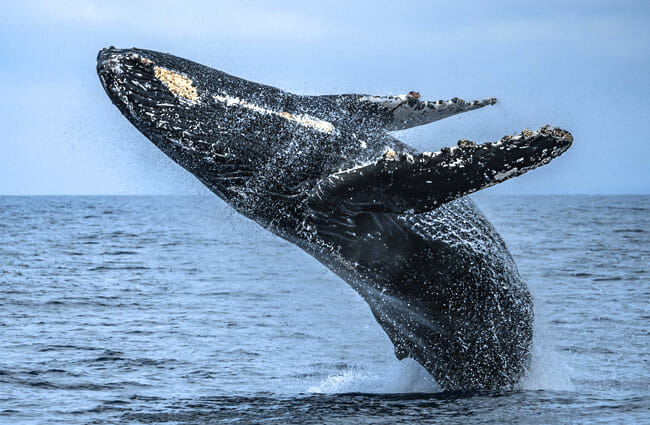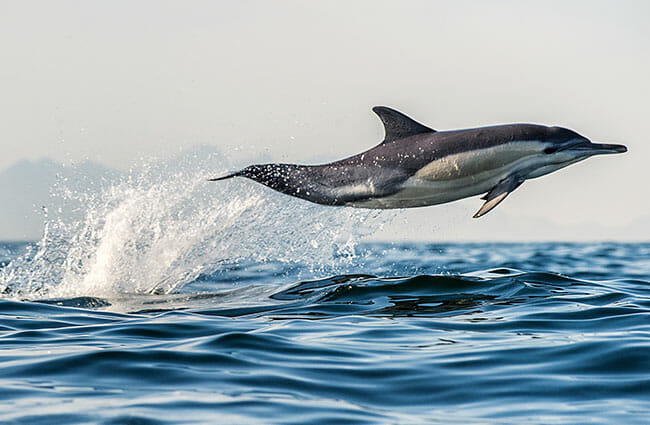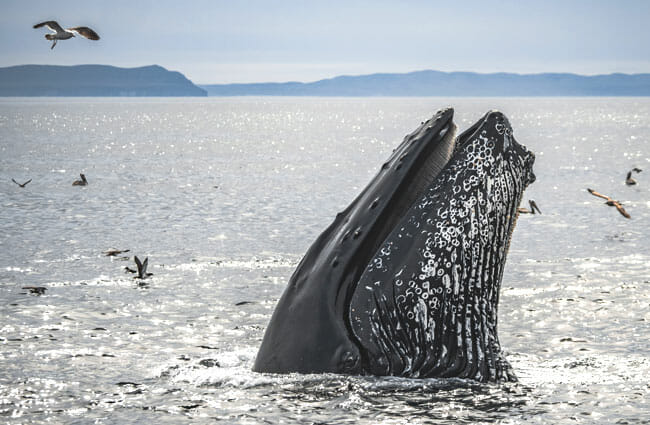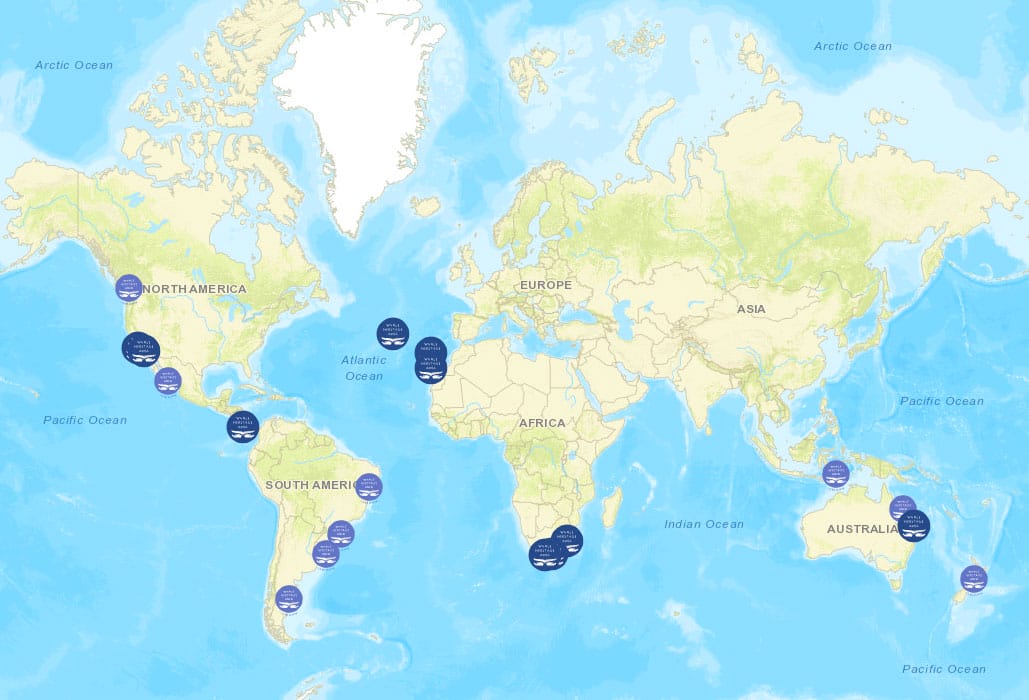About Whale Heritage Areas
The Importance of Whale
Heritage Areas
The Whale Heritage Area (WHS) program is an initiative created by the World Cetacean Alliance, and currently run in partnership with World Animal Protection, to formally recognise and accredit destinations around the world that support and demonstrate the importance of cetaceans and their ocean habitats.
Whale Heritage Areas are a network of areas designated with well-developed and robust criteria where cetaceans and people exist in harmony.


Respectful Human-Cetacean Coexistence
There are now eleven official Whale Heritage Areas:
- Santa Barbara Channel, California
- Madeira, Portugal
- The Whitsundays, Australia
- Harvey Bay, Australia
- The Bluff, South Africa
- Tenerife-La Gomera Marine Area, Spain
- Dana Point, California
- Algoa Bay, South Africa
- The Azores, Portugal
- Plettenberg Bay, South Africa
- Golfo Dulce, Costa Rica
As of April 2024, there are of eight candidate areas:
- Cabo Pulmo, Mexico
- Vancouver Island, North Canada
- Marlborough Sounds, New Zealand
- Cabo Polonio, Uruguay
- Ombai-Wetar Straight, Timor-Leste
- Santa Catarina Nursery, Brazil
- Salvador, Brazil
- South San Jorge Gulf, Argentina

For the travel industry, Whale Heritage Areas provide a clear marker to help identify and support sustainable practices and create a platform for communities to engage with marine culture, heritage, and biodiversity. For tourists, Whale Heritage Areas provide a transparent and easy way to select responsible whale and dolphin watching holiday destinations, encouraging them to experience these incredible animals in their natural habitat, in an authentic and responsible way.
Our hope for the future here in the SB Channel is to be part of the growing network of more Whale Heritage Areas where whales are celebrated for their ecological role in enhancing ocean productivity; where whales have an economic value through responsible tourism; where conservation and research is a priority in reducing the impacts on their longevity and where we can continue to learn and appreciate the rich complex lives of whales and dolphins.

